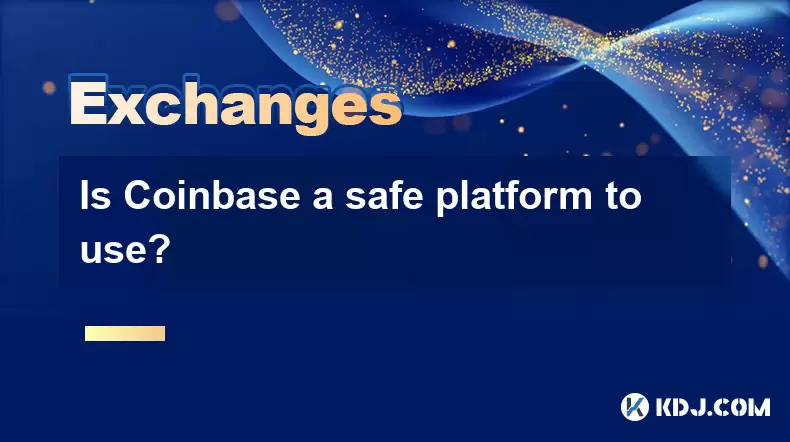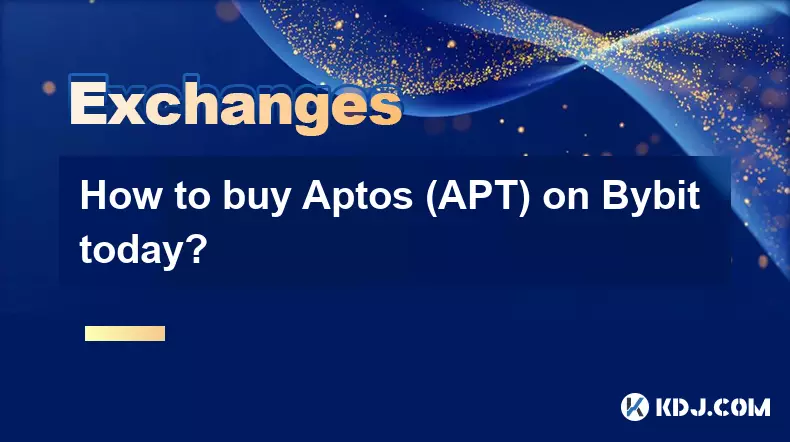-
 bitcoin
bitcoin $87959.907984 USD
1.34% -
 ethereum
ethereum $2920.497338 USD
3.04% -
 tether
tether $0.999775 USD
0.00% -
 xrp
xrp $2.237324 USD
8.12% -
 bnb
bnb $860.243768 USD
0.90% -
 solana
solana $138.089498 USD
5.43% -
 usd-coin
usd-coin $0.999807 USD
0.01% -
 tron
tron $0.272801 USD
-1.53% -
 dogecoin
dogecoin $0.150904 USD
2.96% -
 cardano
cardano $0.421635 USD
1.97% -
 hyperliquid
hyperliquid $32.152445 USD
2.23% -
 bitcoin-cash
bitcoin-cash $533.301069 USD
-1.94% -
 chainlink
chainlink $12.953417 USD
2.68% -
 unus-sed-leo
unus-sed-leo $9.535951 USD
0.73% -
 zcash
zcash $521.483386 USD
-2.87%
Is Coinbase a safe platform to use?
Coinbase secures over 98% of user funds in offline cold storage, employs strong 2FA, and offers insurance on custodial assets, making it one of the most trusted crypto platforms.
Aug 05, 2025 at 11:29 am

Understanding Coinbase’s Security Infrastructure
Coinbase is widely recognized as one of the most reputable cryptocurrency exchanges in the world, and its security infrastructure plays a significant role in establishing that reputation. The platform employs multi-layered security protocols to protect user assets and data. A key component of this is the use of cold storage, where over 98% of customer funds are stored offline in geographically distributed data centers. This drastically reduces the risk of hacking, as offline wallets are not accessible via the internet. The remaining 2% kept online is insured against theft or loss, adding an extra layer of protection.
Another critical aspect is two-factor authentication (2FA). Users are strongly encouraged to enable 2FA through an authenticator app such as Google Authenticator or Authy. This adds a second verification step beyond passwords, making unauthorized access significantly harder. It is important to note that SMS-based 2FA is less secure and vulnerable to SIM-swapping attacks; therefore, using an authenticator app is the recommended method.
Coinbase also conducts regular security audits and penetration testing to identify and fix vulnerabilities. The company works with leading cybersecurity firms and follows industry best practices such as encryption of sensitive data and secure key management. These practices ensure that user information, including personal identification and transaction history, remains protected from unauthorized access.
User Account Protection Measures
Protecting individual user accounts is a top priority for Coinbase, and the platform offers several tools to enhance personal security. One of the most effective tools is device management, which allows users to view and manage all devices that have accessed their account. If a suspicious device is detected, users can remotely log out that device directly from their security settings.
The login verification system monitors for unusual login attempts, such as logins from unfamiliar locations or devices. When such activity is detected, Coinbase may require additional verification steps, including email confirmation or 2FA approval. This proactive monitoring helps prevent unauthorized access even if login credentials are compromised.
Users also have access to advanced phishing protection. Coinbase sends alerts if it detects attempts to access the account through known phishing domains. It is crucial for users to never enter their credentials on websites that do not have the official coinbase.com domain. The platform will never ask for passwords or 2FA codes via email or phone.
Insurance and Asset Protection
One of the standout features that contribute to Coinbase's safety is its comprehensive insurance policy. The platform maintains crime insurance that covers digital assets held in its online storage systems. This insurance protects against losses due to theft, hacking, and employee dishonesty. The policy is underwritten by top-tier insurance carriers and is regularly updated to reflect the growing value of assets on the platform.
For assets stored in Coinbase Wallet (the non-custodial wallet), the situation differs. Since users hold their own private keys, Coinbase does not control or insure these funds. This means that if a user loses their recovery phrase or sends funds to the wrong address, there is no recourse through Coinbase. It is essential for users to understand the distinction between the custodial exchange service and the self-custody wallet.
The insurance coverage applies only to the centralized exchange portion of Coinbase. This includes assets held in user accounts on the main platform, such as BTC, ETH, and other supported cryptocurrencies. The existence of this insurance provides peace of mind, especially for new users who may be hesitant about storing digital assets online.
Compliance and Regulatory Oversight
Coinbase operates under strict regulatory compliance frameworks, which enhances its credibility and safety. As a U.S.-based company, it is registered with the Financial Crimes Enforcement Network (FinCEN) as a Money Services Business (MSB). It also complies with Know Your Customer (KYC) and Anti-Money Laundering (AML) regulations, requiring users to verify their identity before trading.
This regulatory alignment means that Coinbase is subject to audits and reporting requirements, which increase transparency and accountability. The platform also cooperates with law enforcement agencies when necessary, although user privacy is maintained within legal boundaries. Being a publicly traded company (NASDAQ: COIN) further subjects it to financial disclosures and governance standards.
Regulatory compliance also means that certain features, such as staking or derivatives trading, are only available in jurisdictions where they are legally permitted. This cautious approach reduces legal risks and protects users from engaging in non-compliant activities unknowingly.
Steps to Maximize Your Security on Coinbase
To fully benefit from Coinbase’s security features, users must take proactive steps to secure their accounts. The following measures are essential:
- Enable two-factor authentication using an authenticator app instead of SMS.
- Use a strong, unique password that is not reused across other platforms.
- Regularly review active sessions and devices in the security settings and log out unknown devices.
- Store your recovery phrase offline if using Coinbase Wallet, and never share it with anyone.
- Activate email and phone alerts for login attempts and transactions.
Additionally, users should be cautious of social engineering attempts. Scammers may pose as Coinbase support staff via email, phone, or social media. Always verify the authenticity of communication by contacting support only through the official Coinbase website or app.
Avoid clicking on links in unsolicited messages, even if they appear to come from Coinbase. Instead, manually type www.coinbase.com into your browser. Bookmarking the official site can help prevent accidental visits to phishing pages.
Frequently Asked Questions
What should I do if I suspect my Coinbase account has been compromised?Immediately log in from a trusted device and change your password. Enable 2FA if not already active. Review your active sessions and log out any unfamiliar devices. Contact Coinbase support through the official help center to report the incident and request a security review.
Does Coinbase have a history of security breaches?Coinbase has not experienced a major breach of its cold storage systems. There was a limited incident in 2021 involving a small number of accounts due to social engineering, but the platform responded quickly with enhanced verification processes. No customer funds were lost from the company’s reserves.
Can Coinbase freeze or seize my cryptocurrency?In rare cases, Coinbase may restrict account access in response to suspicious activity or legal requirements. This is not a seizure of funds but a temporary hold for investigation. Funds remain in the user’s account and are restored once verification is complete.
Is it safe to store large amounts of crypto on Coinbase long-term?While Coinbase is secure, storing large amounts of cryptocurrency on any centralized exchange carries inherent risks. For long-term holdings, it is safer to transfer funds to a hardware wallet or other self-custody solution where you control the private keys.
Disclaimer:info@kdj.com
The information provided is not trading advice. kdj.com does not assume any responsibility for any investments made based on the information provided in this article. Cryptocurrencies are highly volatile and it is highly recommended that you invest with caution after thorough research!
If you believe that the content used on this website infringes your copyright, please contact us immediately (info@kdj.com) and we will delete it promptly.
- Axie Infinity Buyers Fuel Market Jump with New bAXS Token Airdrop and Technical Resurgence
- 2026-02-10 03:40:02
- Japan Coin Parking Kerfuffle Leads to Arrest After Six Years
- 2026-02-10 04:20:01
- Mark Yusko Predicts Bitcoin Price Trajectory Towards 2026 Amidst Crypto Winter and Shifting Market Dynamics
- 2026-02-10 04:20:01
- Silver Coin Investment: Your Best Buy for a Volatile Market
- 2026-02-10 04:15:02
- Bitcoin Holdings Surge: Strategy's $90 Million Purchase Signals Deepening Institutional Conviction
- 2026-02-10 04:15:02
- BlackRock CEO Sees Crypto as the Next Frontier in Global Finance, While Institutions Navigate Digital Assets
- 2026-02-10 04:00:02
Related knowledge

How to buy JasmyCoin (JASMY) on Bybit?
Feb 09,2026 at 03:40am
Creating a Bybit Account1. Navigate to the official Bybit website and click the 'Sign Up' button located in the top-right corner. 2. Enter a valid ema...

How to contact Bybit customer support for urgent help?
Feb 05,2026 at 11:40pm
Accessing Bybit Support via Live Chat1. Log in to your Bybit account using the official website or mobile application. 2. Navigate to the Help Center ...

How to buy Injective (INJ) on Bybit in 2026?
Feb 09,2026 at 05:39pm
Account Registration and Verification Process1. Navigate to the official Bybit website and click the “Sign Up” button located in the top-right corner....

How to use Bybit Dual Asset investment for high yield?
Feb 06,2026 at 12:20am
Understanding Bybit Dual Asset Investment Mechanics1. Dual Asset Investment is a structured product offered by Bybit that combines a stablecoin deposi...

How to fix Bybit login issues quickly?
Feb 09,2026 at 06:00am
Troubleshooting Common Authentication Errors1. Incorrect credentials often trigger immediate rejection during Bybit login attempts. Users frequently o...

How to buy Aptos (APT) on Bybit today?
Feb 06,2026 at 07:40am
Creating a Bybit Account1. Navigate to the official Bybit website and click the “Sign Up” button located at the top right corner of the homepage. Ente...

How to buy JasmyCoin (JASMY) on Bybit?
Feb 09,2026 at 03:40am
Creating a Bybit Account1. Navigate to the official Bybit website and click the 'Sign Up' button located in the top-right corner. 2. Enter a valid ema...

How to contact Bybit customer support for urgent help?
Feb 05,2026 at 11:40pm
Accessing Bybit Support via Live Chat1. Log in to your Bybit account using the official website or mobile application. 2. Navigate to the Help Center ...

How to buy Injective (INJ) on Bybit in 2026?
Feb 09,2026 at 05:39pm
Account Registration and Verification Process1. Navigate to the official Bybit website and click the “Sign Up” button located in the top-right corner....

How to use Bybit Dual Asset investment for high yield?
Feb 06,2026 at 12:20am
Understanding Bybit Dual Asset Investment Mechanics1. Dual Asset Investment is a structured product offered by Bybit that combines a stablecoin deposi...

How to fix Bybit login issues quickly?
Feb 09,2026 at 06:00am
Troubleshooting Common Authentication Errors1. Incorrect credentials often trigger immediate rejection during Bybit login attempts. Users frequently o...

How to buy Aptos (APT) on Bybit today?
Feb 06,2026 at 07:40am
Creating a Bybit Account1. Navigate to the official Bybit website and click the “Sign Up” button located at the top right corner of the homepage. Ente...
See all articles










































































